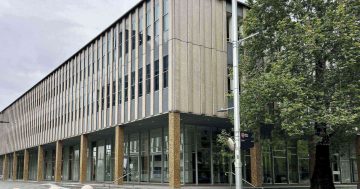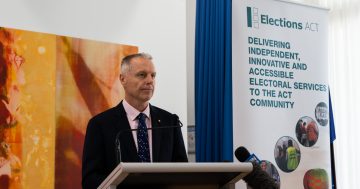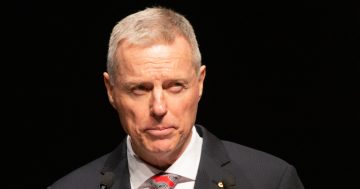The Attorney-General, Simon Corbell, yesterday tabled two reports into the ACT Electoral Act and introduced legislation to improve our electoral system.
“The amendments to the Electoral Act build on the existing electoral system by strengthening the regulatory framework that supports transparent and accountable electoral expenditure, without diminishing the accountability of parties and electoral candidates.” Mr Corbell said.
On 20 March 2014, the ACT Legislative Assembly established a Select Committee on Amendments to the Electoral Act 1992 to consider a number of matters related to electoral reform in the ACT. The Electoral Commission has also published the Report to the Legislative Assembly on proposed changes to the Electoral Act 1992, which provides valuable input to address technical and operational matters.
The Attorney-General announced that amendments to the Electoral Act support most of the recommendations of the Select Committee, some of which include:
- Lower electoral expenditure caps for both individual candidates and parties.
- Increasing public funding for eligible votes from $2 to $8 per eligible vote received.
- Consistent treatment of anonymous gifts.
- Bringing financial reporting responsibilities into line with modern business practices.
The Bill also implements most of the recommendations made by the Electoral Commission in relation to campaign finance, including:
- Clarifying disclosure requirements for gifts received by ministers.
- Extending the deadline for lodgement of annual returns to assist parties to provide accurate reports, but still make information publicly available prior to elections.
- Revising a number of reporting requirements to assist compliance without reducing accountability and transparency.
In addition to these areas, the Bill removes the limits on donations to candidates and parties, eliminating any unintended incentive to circumvent controls on electoral funding, while still maintaining strict reporting requirements. These requirements, with the reduced election expenditure caps and increase in public funding, work to support a robust and transparent electoral funding scheme.
“The government responses and the accompanying legislation will result in clearer electoral regulation, including less onerous reporting responsibilities, without diminishing the accountability of parties and electoral candidates,” Mr Corbell said.
“The responses will result in a greater alignment with modern accounting practices and use of the internet to communicate. The Bill also makes a number of technical amendments to clarify the operation of the Act.
“The changes agreed to in the government responses will strengthen the integrity of our electoral system as the cornerstone of a robust democracy and a society in which citizens can truly participate.”
(Simon Corbell Media Release)

















